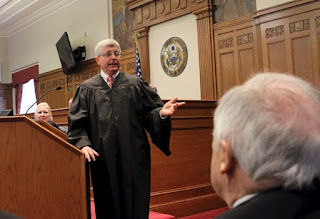In the case of Binotto v. Geico, No. 3:22-CV-210 (W.D. Pa. May 30, 2025 Haines, J.), the court denied a Plaintiff’s Motion for Leave to File a Third Amended Complaint in order to allege bad faith against the carrier.
According to the Opinion, the Plaintiffs had previously filed a Second Amended Complaint which included allegations of bad faith against Geico. However, the Plaintiffs opted to withdraw that Second Amended Complaint under an indication that they thought that the case would settle with the resolution of the summary judgment proceedings.
The court reviewed Federal Rule of Civil Procedure 15(a), which sets out the standard for granting leave to amend a Complaint when a responsive pleading has already been served. Under that rule, a party may amend its pleading only with the opposing party’s written consent or with leave of court. The rule additionally states that the court should freely give leave of court when justice so requires.
However, the court in this matter noted that the policy favoring liberal amendments is not without bounds. The decision on whether to grant or deny a Motion for Leave to Amend still rests within the sound discretion of the district court.
The court noted that a federal district court may deny leave to amend a Complaint where it is apparent from the record that (1) the moving party has demonstrated undue delay, bad faith, or dilatory motives, (2) the amendment would be futile, or (3) the amendment would prejudice the other party.
In this case, the court found that there is no prejudice to the Defendant by the proposed Third Amended Complaint. The court additionally found that, while the Motion for Leave was filed late in the litigation, the court did not find that the Plaintiff acted with any undue delay, bad faith, or dilatory motives. The court also noted that the trial date was still several months away.
Accordingly, the court addressed the element of whether the allowance of an amendment would be futile under the case presented. In this regard, the Plaintiffs asserted that the Defendant carrier never had any intention of fairly and in good faith attempting to negotiate a settlement.
Under the facts presented in this case, the court found that the Defendant carrier’s delay in offering its settlement amount until the summary judgment proceedings were resolved and the Defendant carrier’s subsequent low settlement offer did not amount to clear and convincing evidence of bad faith in any event.
The court also rejected the Plaintiff’s argument that the Defendant acted in bad faith by failing to investigate, allegedly misrepresenting policy provisions, failing to make a reasonable offer in failing to explain the offer. The court found that there were no facts presented in the proposed Third Amended Complaint to support those inferences drawn by the Plaintiff.
Accordingly, the court denied the Plaintiff’s Motion for Leave to File a Third Amended Complaint.
Anyone wishing to review a copy of this decision may click this LINK.
I send thanks to Attorney Joseph A. Hudock, Jr. of the Pittsburgh office of the law firm of Summers, McDonnell, Hudock, Guthrie & Rauch, P.C. for bringing this case to my attention.
















